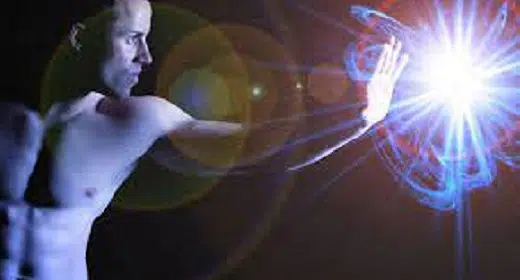This interview is an encounter between female practitioners and female instructors of Tensegrity…
The work is a synthesis of more than two hundred questions sent by women from several countries. One could say that every question differs from each other, but at the same time they are alike as if they had a common vein. In the same way, although every answer seems to be addressed to each one personally, it is an impersonal answer too.
This unprecedented event –we actually think it is so— means an opportunity to dream ourselves in another story –an intent that, after all, involves femininity and masculinity as a duality within ourselves, and in the male-female relationship as well.
Why are you having this second women’s workshop?
A navigator needs to know his or her equipment —what kind of information it can give, and how to use it. As beings with wombs, we need to have a sober and informed awareness of how our wombs guide our perceptions. According to seers, we have been given the incredible gift of a perceiver box, an organ of evolution, and yet we are complacent. We want to be led, to be given procedures. How can we evolve in that state?
Can you please talk about the power of the womb?
The seers of ancient Mexico were interested in awakening the secondary function of the womb: evolution, which meant the direct perception of energy as it flows in the universe. As a mother dreams her child in the womb, navigators with wombs can use that power to dream sorcerers’ dreams.
How do we awaken the secondary functions?
The secondary functions of the womb can be awakened by doing what Florinda Donner-Grau calls vanquishing the self. This begins by taking a sober and clear inventory of one’s socialization, and eliminating useless patterns of behavior. For seers, our biggest waste of energy is the presentation of the self. This includes our presentation of what we think it means to be a man or a woman in the social order.
Lately, you’ve talked about awakening the “true woman” within each of us. Could you explain what you mean by that?
In the seminar in Mexico City, we said that it was necessary to find out what it means to be a man or a woman before we can become “beings-in-dreaming.” A navigator has to become fully aware of how he or she is embodying our socialized beliefs of “what it means to be a man or a woman.”
The students of don Juan asked us to find out: “What do you think it is to be a man, and to be a woman?” We have to review our opinions, and to become aware of unconscious agreements that we have made, or where we gave up or surrendered. Often we find that our beliefs are arbitrary—that they don’t really have anything to do with gender at all. We may have adopted, for example, the belief that “Women are submissive,” which one of us put forth to the nagual. “Aren’t men submissive as well?” he asked.
If we examine where we “gave up” we may find that we surrendered out of convenience, that we weren’t really the victims we believe ourselves to be.
“No one is doing anything to anyone,” don Juan told the nagual, “much less to a warrior.” (The Wheel of Time)
If we want to be “true women,” that means we go to the core of our being, and act on it. Some of us may have done what the nagual called “siding with Daddy.” We are “Daddy’s girls” who want his approval so badly that we imitate him—and we take his worst, rather than his best traits!
If we try to be men, the Nagual told us, we don’t carry it off so well, and we miss out on our best possibility: the direct perception of the womb.
I grew up with the idea that you cannot trust other women, since there is always a question of competitiveness between them. How do I cut this feeling off in order to navigate fluidly with them?
When one of us made a similar statement—that they didn’t trust women, Carol Tiggs went right to the heart of the matter: “You are a woman too, aren’t you? Are you trustworthy? Examine it.”
She said that human beings are filled with unexamined ideas: idealities. In order to navigate, we have to examine those idealities, and act on what that examination brings. Otherwise our assemblage points stay fixed in the same position.
If we examine the ideality of “competition,” we find that we’re all competitive in one sense. We are all asserting our desire to grab onto life, to get what we need. We interpret the assertion of another being who is doing the same as “competition.” We don’t have to interpret it that way. We could just acknowledge that the other person is doing what they need to do—and let them do it. We don’t always have to be number one! Each of us has a direct connection with infinity. Who can take that away?
If you give, Carol Tiggs said, you get everything.
How can we make better use of elements like the wind, for example or abstract forces for sorceric means? (Florinda Donner-Grau once referred to this.)
Florinda Donner-Grau told us that it was better to start small, that we can’t command the wind if we can’t have a pleasant conversation with the people around us.
Carol Tiggs suggests making tiny adjustments, each day. Take an inventory: Was it an artistic day, or was it a day of groaning? What did I do differently today? If the answer is nothing, then we note that, and do it differently the next moment.
At some point Taisha said that flirting is necessary in a woman. How can we manage this without being trapped by the social order?
Taisha Abelar told us that flirting, stripped of its mating ritualistic expectations, gives us an energetic charge. It is a way to use the power of the womb as a constructive force in our daily lives. Females can direct the energy of the womb through their eyes, through their entire beings, and interact from the direct knowledge of the womb in their daily lives.
The nagual described this as having a romance with knowledge, in whatever form knowledge presented itself. We could, he said, have a romance with other beings as well—not a romance of courtship, but of abstract affection.
Courtship, he said, is just “grooving.” Abstract affection, on the other hand, requires discipline—the art of maintaining a state of awe. We uphold the other person as a mysterious and magical being.
Could you talk about menopause and about the loss of the womb in cases where surgery has occurred? Do these circumstances change something within the possibilities we have as women from the sorceric viewpoint? How do we deal with these two situations?
During menopause, sexual energy previously consumed in the mechanics of preparing the womb for reproduction is now freed. Rather than being “dried up,” the menopausal woman is bombarded with a new flow of energy that can be so overwhelming than in many cases, she is afraid of it. The magical passes can give women an edge to maintain their sobriety and vitality during this momentous energetic shift.
In very practical terms, it is a time when the being experiencing it knows she has to do something different in terms of her health and her energy to maintain her sobriety and to maximize the very direct perception that is now a possibility for her.
In the case of hysterectomy: “There are no advantages or disadvantages for a warrior. There are only challenges.” A being who has had a hysterectomy has an excellent challenge, because she still has the energetic blueprint of a womb, but she knows she can’t be complacent. To perceive energy directly, she has to adopt an unbending purpose—the predilection of men, but something all navigators need.
In addition, a hysterectomy can serve as the opportunity to finally look at what one has done with the womb. All the turbulence stored there is our own belief about who we are, or how we copy our mother’s story, her own beliefs, or it reflects our feelings about a father who had no affection for us. We can recapitulate our sexual interactions and see how we can rewrite the story in a different way.
At a seminar I recall having heard that the female students of don Juan focus their attention on evolution, not on reproduction. How do you see being a mother if one feels the desire to be one?
The important thing for a navigator is to be impeccable, to back up his or her decisions, whatever they may be. If someone chooses to be a mother, then she is an impeccable mother. She gives the child her total affection, without investment, and without trying to please the child. And she takes care of her own needs, so that she’s not angry that she gives everything, and no one gives anything in return.
After the seven years of celibacy that Taisha Abelar talked about, will the feelings of longing and desire for the opposite sex lessen?
Longing and desire are not things navigators want to get rid of! A better question would be—what are we longing for? Is it really the opposite sex? Or is there more to it? We can use longing and desire as positive forces that drive us to act differently, to dream.
In the view of seers, what human beings are ultimately longing for is the energy body. Acknowledging this brings elegance, rather than compulsion and need, to our interactions with males and females.
Seers recommend a moment of celibacy because navigators—especially females—need to examine their own inventory. They need a moment’s pause to find out who they are, and what they want.
What we usually find out is that we are, as the nagual put it “helter skelter.” We are all over the place. We need cohesion before we can mix energetically with another person.
We are not ready for the energetic exchange that takes place in (any) sexual interaction if we haven’t examined our own inventory, including all the expectations and interpretations we place on our links with others. The nagual told us that in our interactions, we were always waiting to be reciprocated, and that navigators are not waiting for returns. They approach any union with another being with ultimate discipline, ultimate affection.
Taisha Abelar pointed out to us that celibacy for a warrior is not a matter of earning extra points for good behavior, for charting up the right amount of “sacrifice.” That, she said, is missing the point. “Seven years,” she said, refers to a complete cycle of time. The actual time of this cycle may vary for different women. We have to read this for ourselves, and take responsibility for it. That’s exciting! Infinity will point out a direction to follow, which we can perceive if we are silent.
Is crying, for a warrior, a sign of weakness, of hooking on to the world? Recapitulation, internal silence and seeing, will they dissolve these feelings of emptiness or are there feelings that never leave us?
Warriors do cry, but not over something trivial. A warrior does not cry for himself.
If our sadness is a result of regrets linked with someone we knew in the past, we can take the affection we feel for that person, and express it with the person in front of us. We can do the things now that we didn’t get to do with that other person in the past. We pay back in the present moment.
Don Juan told Carlos Castaneda: “A warrior-traveler’s only way to say thank you and goodbye was by this act of magic: of storing in his silence whatever he has loved.” (The Active Side of Infinity) The nagual showed us that a warrior-traveler expresses that love with the beings he encounters now.
How can we work toward sobriety?
By becoming aware of our equipment and taking responsibility for it. For example we can keep track of our menstrual cycles, so that we are not surprised by shifting moods—so that we are not giggling and saying, “Oh, I’m so out of it, I don’t know why.”
We can have extra discipline during moments of the cycle when we are craving strange foods, or when we need more rest. It’s our responsibility to simply sleep more, and to eat well—not to eat junk. “You know better,” Florinda Donner-Grau asserts. “You have an extra edge that the magical passes bring you. Use it to discipline yourself, rather than repeatedly greeting tasks with, ‘I don’t feel like it.”
How do we focus intent for actions like dreaming?
We simply do it. The syntax of this question shows how we have been trained to wait for instructions, rather than to act. The verb “to act,” has become a noun in this sentence—“actions.” Intending has become “focusing intent.”
Intending comes from a direct link with the force of awareness in the universe. When the link is clear, our actions are clear as well. In order to dream, we intend dreaming. We intend cohesion all day long. If we can be coherent in daily actions, then dreaming comes naturally.
How is one to be an impeccable warrior to those warriors who share the same intent? Some of us confuse the sharing of “a moment on the road” and seek to hang on to someone or we assume the ancestral role of protectors.
Navigating is a solitary journey. No one carries a warrior. Nevertheless, working together means being accountable. If you know you are not good at a certain task—that if you take it on, it won’t be done, or it will be done badly, then you let someone else do that task. It doesn’t mean you sit back and do nothing—You find another way to participate.
Many of us declare that we are independent. Unfortunately, we often make the worst interpretations of “independence.” We take it to mean that we do everything. The nagual told us, be careful what you proclaim yourself to be.
How can we resolve the problem of the abyss which separates men and women in matters of “seeing” and going on with life?
“The abyss” is an interpretation of beings going together into a great adventure. If there were an abyss that truly separated men and women, none of us would have ever been conceived. Seers propose that it is possible for men and women to work together beyond the realm of courtship and reproduction, to create a new way of being.
At one time it was mentioned that there are certain counter-indications about practicing Tensegrity during pregnancy. Is this true?
In reference to the Series for the Womb, yes, Florinda Donner-Grau advises pregnant women that these magical passes are best avoided during pregnancy. This series is infused with the intent of preparing and awakening the secondary functions of the womb—evolution. This is no joke. Many of the movements involve cleansing the sexual organs of their reproductive function. It is not uncommon that practitioners of these movements will begin to menstruate as a result of doing the womb series repeatedly, regardless of the corresponding time in their cycles, as the womb is physically cleared and flushed for a new purpose. Pregnancy is not the appropriate moment to challenge the primary reproductive functions of the womb. Menstruation, however, is considered a powerful time for practicing the series for the womb, as the womb is emptied and enhanced as an organ of perception—just the right moment for it to bring us new perceptions.
Practicing other magical passes that do not directly apply energy to the womb is perfectly fine during pregnancy. One mother told us that she gently practiced the magical passes for not-doing while she was pregnant, and she felt the baby kicking and punching at the same time she did.
Could you give some advice as to how to behave with Mommy, so as not to be hooked into ancestral tricks and to avoid ending up fighting? And how can we prevent the repetition of patterns with our own children?
Behave with Mommy and with your children as a being that is going to die. You may never see her, or them, again. How are you going to act.









































